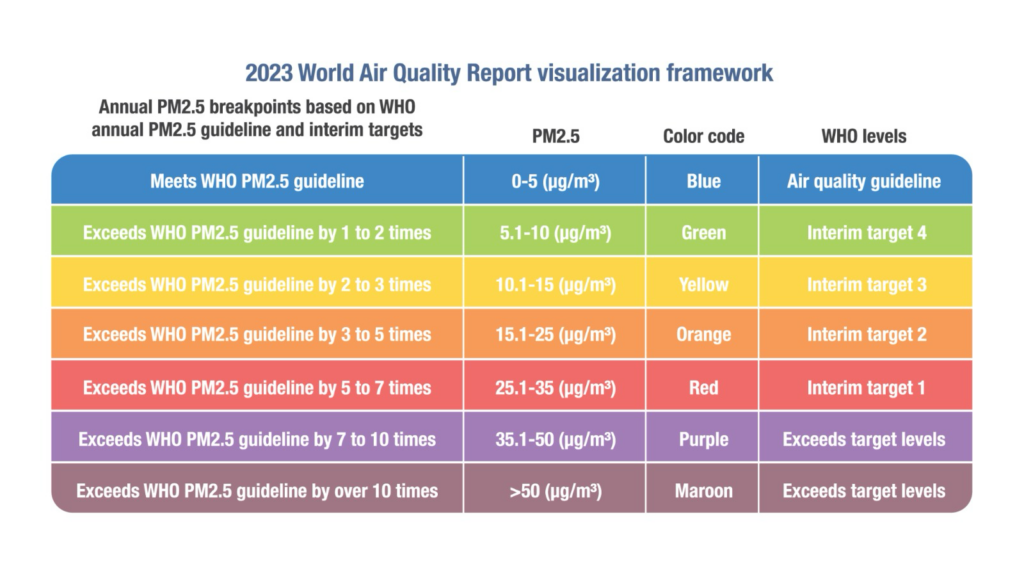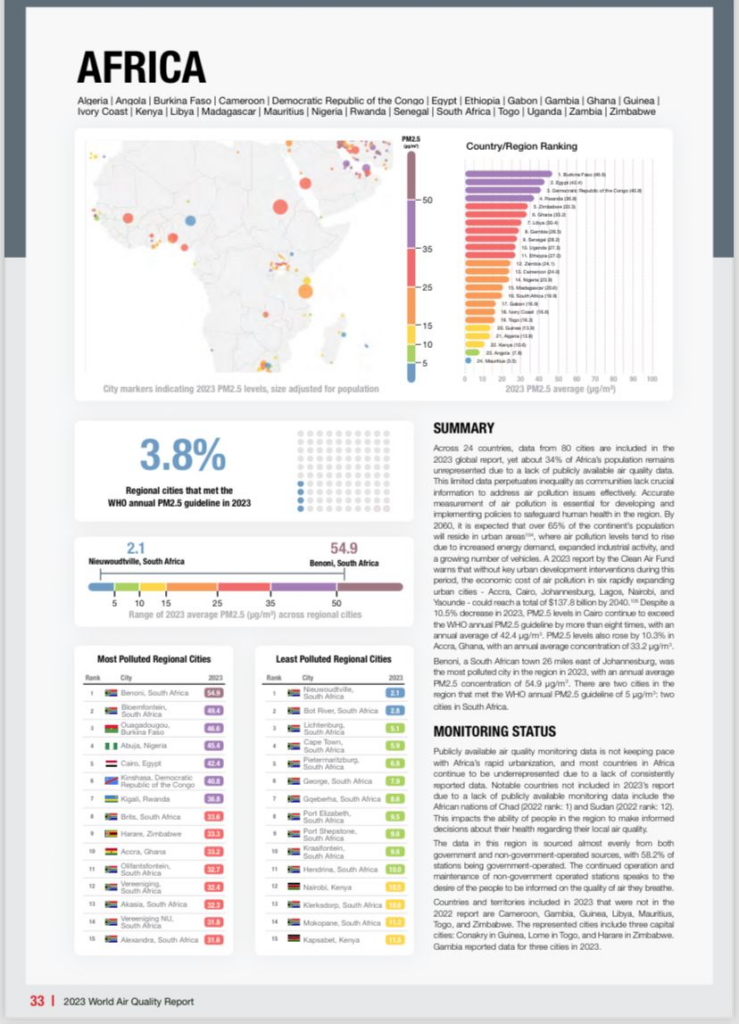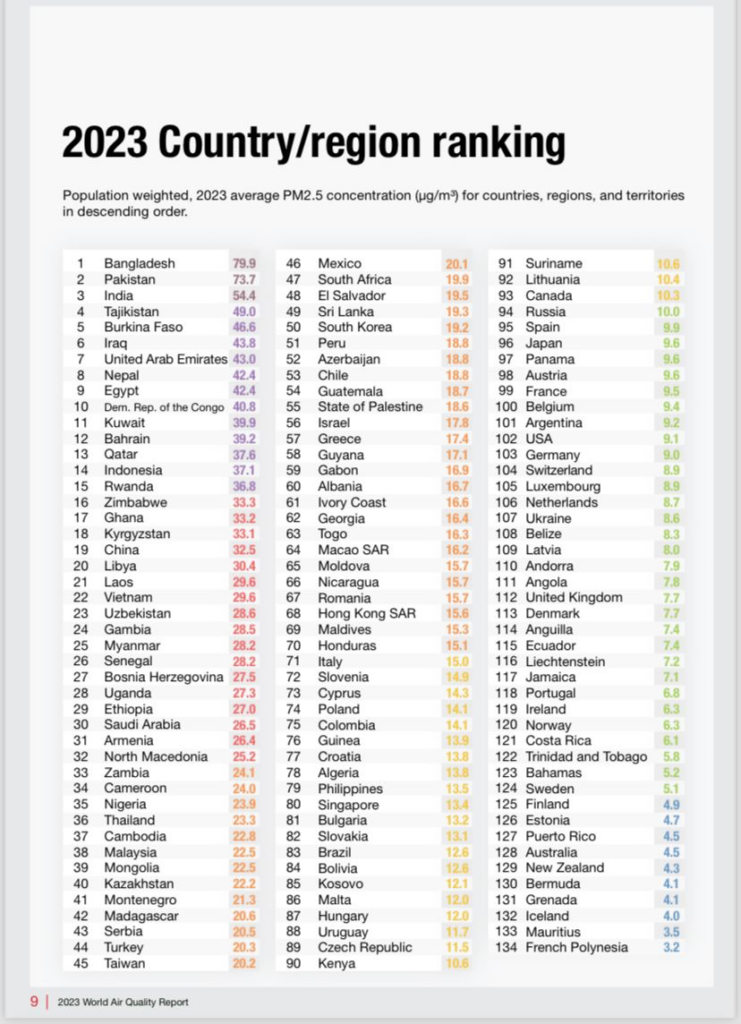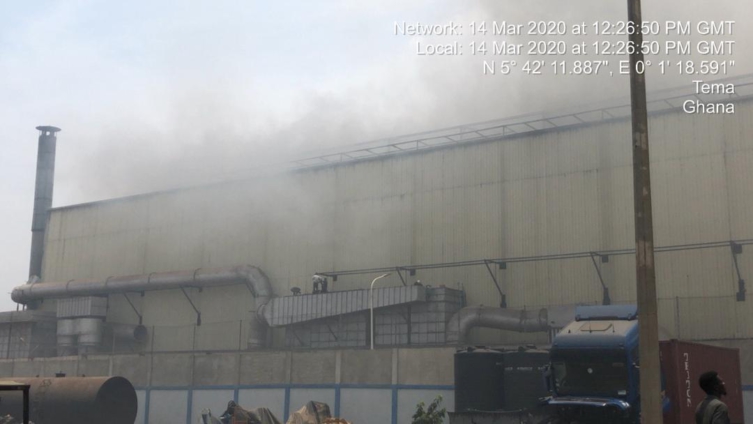The 6th Annual World Air Quality Report, meticulously compiled by IQAir, has shed light on the concerning state of global air quality in 2023.
Drawing data from over 30,000 air quality monitoring stations across 7,812 locations in 134 countries, territories, and regions, the report reveals troubling details about the world’s most polluted countries.
Key findings from the report paint a grim picture of the global air quality crisis. Shockingly, only seven countries managed to meet the World Health Organisation's annual PM2.5 guideline, signifying the widespread prevalence of air pollution.

Among the top five most polluted countries are Bangladesh, Burkina Faso, and Ghana, with PM2.5 levels soaring far beyond the WHO guidelines, posing significant health risks to their populations.
Air pollution, characterized by the contamination of the environment by various chemical, physical, or biological agents, is a pressing global concern.
Exposure to fine particulate matter, particularly PM2.5, has been linked to a range of health conditions, including stroke, heart disease, lung cancer, and respiratory illnesses.

Tragically, air pollution claims the lives of 6.7 million people prematurely every year, underscoring its devastating impact on human health.
PM2.5, the primary air quality indicator, refers to fine particulate matter measuring up to 2.5 microns in diameter.
These tiny particles can penetrate deep into the lungs and bloodstream, causing a host of health problems.
Common sources of PM2.5 include combustion engines, industrial processes, and natural events like dust storms and wildfires.
While the global air quality crisis poses significant challenges, there are glimmers of hope in the form of cities that have managed to maintain clean air standards.

In the United States, cities like Las Vegas, Nevada, stand out as shining examples of clean air, demonstrating that with concerted efforts and effective policies, it is possible to mitigate the impacts of air pollution and safeguard public health.
As the world grapples with the far-reaching consequences of air pollution, the 2023 World Air Quality Report serves as a stark reminder of the urgent need for collaborative action.
Governments, organizations, and communities must work together to address this pressing issue and ensure a healthier, cleaner future for all.
This story was a collaboration with New Narratives. Funding was provided by the Clean Air Fund. The funder had no say in the content of the story
Latest Stories
-
Congo, M23 rebels plan return to Qatar talks amid Trump pressure
45 minutes -
US, Colombia recall their ambassadors in diplomatic tussle
57 minutes -
‘It’s a joke’: Peruvians outraged after president doubles her salary
1 hour -
Putin tells Trump he won’t back down from goals in Ukraine, Kremlin says
1 hour -
Boxer Julio Cesar Chavez Jr arrested by US immigration
2 hours -
Over 100 former senior officials warn against planned staff cuts at US State Department
2 hours -
Dagbang overlord bans celebration of 2025 fire festival in Tamale
2 hours -
BBC senior staff told to ‘step back’ from duties following row
2 hours -
North Tongu DCE urges trust in gov’t as flood victims awaits compensation
2 hours -
2 arrested for murder of Lebanese national in East Legon
2 hours -
NSMQ 2025: GSTS clinch Western Regional Championship to book spot at national
2 hours -
New Supreme Court judges pledge fairness, acknowledge family support
2 hours -
Kilmar Ábrego García alleges torture and abuse in El Salvador prison
2 hours -
Gov’t sets up committee to investigate sale of state lands, including those owned by schools
3 hours -
Angélique Kidjo first black African to get Hollywood Walk of Fame star
3 hours

